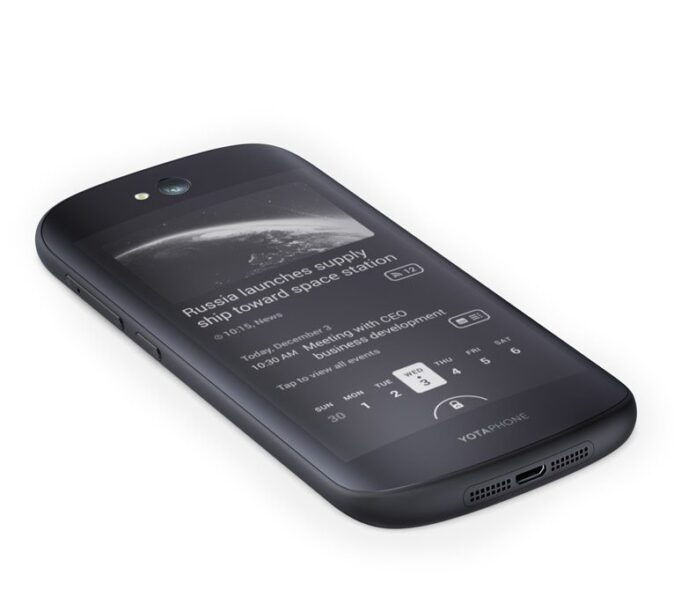WASHINGTON – The Russian-made YotaPhone, which that country’s president, Vladimir Putin, has called his nation’s answer to the Apple iPhone, has stalled in its sales, but the company behind it is hopping to find more fertile ground in China.
Despite an optimistic target of 1 million devices shipped globally, Yota only saw 100,000 devices shipped last year.
The YotaPhone has a unique front and back screen design with one an HD display and the other a power-saver screen for apps like the Kindle E-Book reader. YotaPhone currently sells in the U.S. for $640 on Amazon. Used devices, which sell for about $250, are not well reviewed. Yota scrapped a U.S. release after initially turning to the crowd-sourcing platform Indiegogo to raise funds.
Now, Yota Devices is hoping that China’s booming consumer economy will make a receptive market for its device. The move is due in no small part to some international diplomacy as CEO of Yota Vlad Martynov explained: “After President Putin presented a YotaPhone to President Xi Jinping, we got so many fans in China on social media,”
Martynov said in an interview with Bloomberg News, “We look at China and the U.S. and we realize that we have a better chance to succeed with YotaPhone 2 in China than in the U.S. at this time.”
However, if Yota wants to expand into China, it will face some stiff competition. Mark Tanner, founder of China Skinny, a Shanghai-based research and marketing agency noted: “They will be facing formidable local competitors who are able to provide quality products at competitive prices. If it does become successful, it might have a few months before local manufacturers reverse engineer the phone to make copycats.”
Research provided by IDC shows that China’s smartphone market may have peaked; despite growing by 19.7% in 2014, the market is set to only grow by 1.2% in 2015.
Yota Devices is a Moscow-based startup, which was spun off from the Russian mobile broadband provider Yota in 2011.
When the first smartphone was released in 2013, Yahoo financial blogger Aaron Pressman went so far as to say this “strange hybrid” was destined for “the Museum of Oddball Orphan Technology.”

